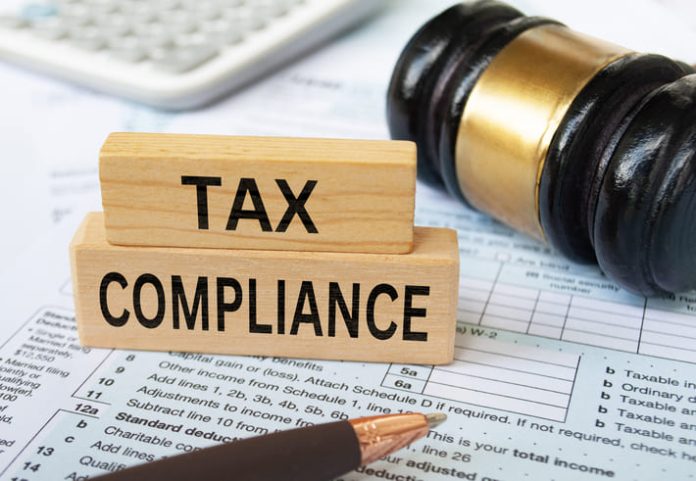Set up a company in Hong Kong is a magnet for investors worldwide because it is strategically located and has a strong economy as well as a favorable environment for doing business. One of the main issues when setting up a business in Hong Kong is to understand its tax regulations and the laws that govern the financial institution. This exhaustive guide is meant to clarify these issues that will give you the necessary knowledge to cope with the complex financial scenario.
Understanding Hong Kong’s Tax System
Hong Kong is famous for its simple, low-tax regime, which makes the country a significant attraction for businesses. The principal taxes on companies in Hong Kong are:
1. Profits Tax
Profits tax is the only tax that companies have to pay when they are carrying out business in Hong Kong. The latest regulations say that:
- Corporations are taxed at a rate of 16.5% on their assessable profits.
- Unincorporated businesses, such as partnerships and sole proprietorships, are taxed at a rate of 15%.
The most significant is their adherence to the territorial source principle which simply means that profits are only taxed if they are derived from or occur in Hong Kong. No taxation on the profits from the outer country but remitted back to Hong Kong.
2. Salaries Tax
If your company has employed staff, salary tax is also applicable to the wages of the employees:
- Salaries tax is usually a progressive tax with rates that can range from 2% to 17%.
- Moreover, some allowances and deductions can be claimed, which can, in turn, reduce the taxable income.
3. Property Tax
Property tax is the tax imposed on the owner of the land or buildings in Hong Kong:
- The property tax is 15% of the net assessable value of the property, which is the current property tax rate.
4. Stamp Duty
Stamp duty is the duty that applies to several transactions like share transfers and property leases:
- The rates may vary according to the transaction, but there is a specific scale for each case.
Tax Incentives and Exemptions
Hong Kong tries to attract companies to make business by firms register and grow its economy. It can be done by Hong Kong company registration services. Hong Kong offers a variety of tax incentives and exemptions to attract enterprises and stimulate economic development. Some of the remarkable incentives include:
1. Start-Up Tax Incentives
Hong Kong has launched competitive innovative projects to support start-ups:
– Two-tiered Profits Tax Rates: The first HKD 2 million of profits are taxed at a reduced rate of 8.25%, with the rest being taxed at the standard rate of 16.5%.
2. Research and Development (R&D) Tax Incentives
Through the implementation of R&D schemes, companies can be encouraged to put more into the programs and receive advanced tax deductions:
- Eligible R&D expenditures can enjoy a 300% tax deduction for the first HKD 2 million and a 200% deduction for the remaining amount.
3. Offshore Income Exemption
It should be noted that Hong Kong does not tax profits that are sourced outside its borders. This is a big win for businesses that seek part in international trade.
Compliance with Financial Regulations
Understanding the tax structure of Hong Kong alone does not guarantee the smooth and successful operation of any business. Additional measures to be taken are the company registration process and the reporting requirements for companies.
1. Company Registration and Reporting
All businesses are required to register with the Companies Registry and meet certain reporting criteria that are discussed as follows:
- Annual Returns: Companies have to file an annual return providing the Companies Registry with the details of their directors, shareholders, and other statutory information.
- Financial Statements: Companies are responsible for the preparation and filing of the annual financial statements audited by a certified public accountant.
2. Anti-Money Laundering (AML) and Counter-Terrorist Financing (CTF)
Hong Kong has AML/CTF regulations to be followed by companies to prevent illegal activities.
- Corporates shall be the ones who will come up with strict measures on AML/CTF policies by first conducting due diligence on clients’ things and then reporting to the authorities who are in charge of those cases if there happens to be an account blocking a suspicious transaction.
3. Data Protection and Privacy
Businesses, in addition, are required to observe the Personal Data (Privacy) Ordinance (PDPO), which regulates the collection, use, and handling of personal information:
- The companies are the ones supposed to put in place suitable data protection mechanisms and protect the privacy of individuals’ data.
4. Employment Ordinance
The Employment Act outlines what the employers and the employees are entitled to as well as their roles and responsibilities:
- Different key categories are wage protection, rest day entitlement, leave accrual and retrenchment benefit.
Conclusion
Commencing a brand-new company in Hong Kong is very desirable but at the same time very difficult, the knowledge of revenue and financial information being imperative for that goal. Hong Kong is the best place for businesses to grow due to the low tax rates, territorial tax system, and lots of incentives that it has. Compliance with the financial regulations along with taking the best practices in tax filing you can build a strong foundation for your business in Hong Kong and you will also be able to use the many opportunities that the city has to offer.
Courageously take on your business journey and gather the tools to maneuver through the financial maze that Hong Kong stands for.




































































